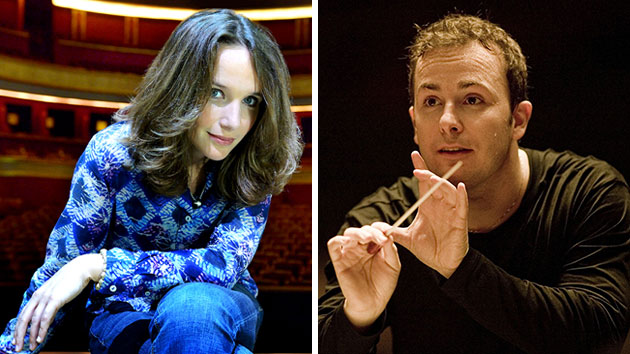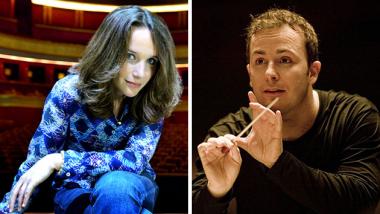
Before traveling from sunny California to the freezing temperatures of Ann Arbor, Chicago and New York, the Rotterdam Philharmonic Orchestra (RPhO) concluded the West Coast leg of its 2015 U.S. tour with two different concerts at Davies Symphony hall, with music by Brahms, Tchaikovsky, Ravel and Prokofiev.
This is only the second U.S. tour in the history of the RphO: The last time was in 1970, when the orchestra played 26 concerts in 31 days under a then 29-year old conductor Edo de Waart, who would become S.F. Symphony music director from 1977-1985.
The current tour schedule is not quite as strenuous, but it gives the RPhO ample opportunity to show itself as the other world-class symphony orchestra from the Netherlands, and completely on par with the venerable Royal Concertgebouw Orchestra.
In fact, it took the RPhO only about eight minutes, the length of the second movement of Prokofiev’s Fifth Symphony, to deliver firm and unequivocal proof that it is a simply fantastic orchestra, and that Yannick Nézet-Séguin is a phenomenal conductor.
The energy of this second movement, marked Allegro marcato, encapsulated the remarkable interaction between Nézet-Séguin and RPhO in its most condensed form. It was fascinating to see him at work with the orchestra.
A masterful manipulator, his hands and eyes are everywhere. Conducting with broad shoulders, arms extended wide and sans baton, he massages the orchestra, marks every detail, extracts phrases, shapes melodic lines and dynamics while his musicians respond with split-second precision.
A masterful manipulator, [Nézet-Séguin's] hands and eyes are everywhere.In a video interview, the 39-year-old, Canadian-born conductor describes the sound of his orchestra as in between the delicate colors of French orchestras and the darker German sound, with extra brightness and more primary colors mixed in. That is a strikingly accurate image.
The RPhO’s overall sound is definitely ‘old world’ and heterogeneous, with clearly defined woodwinds and brass, and strings that still breathe the Russian touch of Valery Gergiev, who was principal conductor in Rotterdam from 1995 until Nézet-Séguin took over in 2008.
What certainly stands out is the enormous dynamic range of the RPhO, especially toward the quieter end of the scale. The orchestra can play magnificently loud when needed and yet stay completely transparent and diffuse, whereas in the softer passages the ensemble retains an incredibly rich, whispery quality that doesn’t lose its expressiveness.
If Nézet-Séguin acted as a musical manipulator in the Prokofiev symphony, he played a more mediating role when French pianist Hélène Grimaud performed Ravel’s Piano Concerto in G major.
Without interfering, he drew soloist and orchestra together, riding the meditative spirit of Grimaud’s carefully constructed opening statement in the central movement (Adagio assai) and gently draping the orchestra over the piano part as it turned inward into a simple progression of accompanying chords.
RPhO and YNS perform Prokofiev 5 at the London Proms in 2013
Grimaud has fortunately lost the ‘flying leg’ with which she often used to mark the end of musical phrases, and with the increased economy of body movement her playing has gained greater depth.
Ravel’s five-piece suite Ma Mère l’Oye (Mother Goose), which opened Monday evening’s concert, showed Nézet-Séguin in yet another role, of facilitator. With a minimum of intervention, he allowed Ravel’s music to unfold and emanate naturally from the orchestra.
In about a decade, Nézet-Séguin will be about the same age as Michael Tilson Thomas was when he became music director in San Francisco; given the excitement that Nézet-Séguin generates, maybe the S.F. Symphony should consider the possibility of YSN as a successor to MTT.
There is just one thing that puzzles me about the concert by the Rotterdam Philharmonic Orchestra, an issue that was echoed by a venerable colleague: Why does a Dutch orchestra go on a U.S. tour to perform music from Russia, France, and Germany, but no music from the Netherlands?
There is no shortage.

